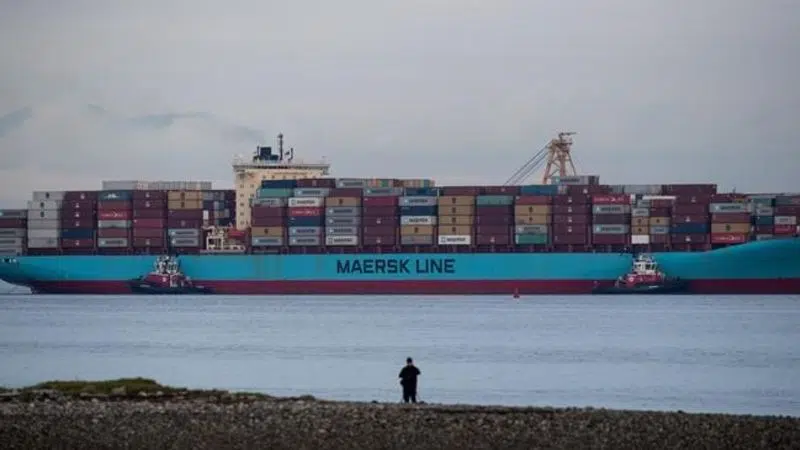
Garbage-hauling ship arrives in Canada after journey from Philippines
VANCOUVER — An infamous load of Canadian trash that had been rotting in the Philippines for more than five years has come full circle, arriving by ship at a port south of Vancouver on Saturday morning.
The Anna Maersk arrived at Deltaport near the Tsawwassen ferry terminal just after 7 a.m., carrying nearly 70 containers and 1,500 tons of Canadian refuse.
The ship began unloading shortly afterwards, and the trash will be held at the terminal before it can be disposed of at an incineration facility in Burnaby, B.C, according to Canadian officials.
Just over a hundred containers of Canadian garbage arrived in the Philippines in 2013 and 2014, exported by a private Canadian company and falsely labelled as plastics for recycling.

